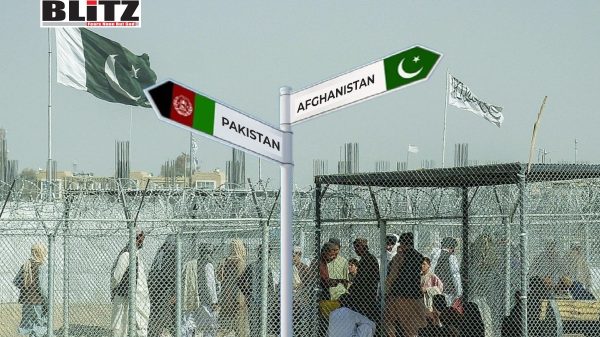FAO leads sustainable solutions for land restoration at COP16
- Update Time : Tuesday, December 3, 2024

As global attention converges on Riyadh for the 16th session of the Conference of the Parties (COP16) to the UN Convention to Combat Desertification (UNCCD), the challenges of land degradation and desertification have taken center stage. These issues, particularly acute in the Near East and North Africa (NENA), threaten food security, ecosystem health, and rural livelihoods. COP16 offers a critical platform to spotlight transformative solutions essential for the region’s sustainable development and resilience to climate change.
The NENA region faces escalating land degradation, with alarming statistics highlighting the gravity of the crisis. Over the past three decades, the proportion of degraded land has surged from 40 percent to 70 percent. Between 1990 and 2020, five million hectares were lost, reducing arable land to less than 1 percent in countries like Saudi Arabia and the UAE. This degradation undermines food security, exacerbates rural poverty, and compromises biodiversity.
The FAO recognizes these challenges as urgent and has positioned sustainable land restoration practices as a cornerstone of its strategy at COP16. By prioritizing integrated land management approaches, the FAO seeks to revitalize degraded landscapes, improve soil health, and protect biodiversity. These initiatives align closely with “Priority 3: Greening agriculture, water scarcity, and climate action” under the FAO’s Regional Priority Framework.
Drought, a recurring challenge in the NENA region, has caused $70 billion in economic losses across Africa over the past 50 years. Increasingly severe and frequent droughts strain the region’s water and food systems. Agriculture accounts for 85 percent of renewable water consumption in the NENA region, yet 60 percent of the water supply comes from transboundary sources, complicating resource management. Projections of a temperature increase of up to 4.8 degrees Celsius by century’s end compound these challenges.
At COP16, the FAO is emphasizing solutions to enhance drought resilience, including advanced technologies, early warning systems, and sustainable water conservation practices. Leveraging digitalization and artificial intelligence, the FAO aims to improve drought monitoring, enable smarter resource management, and optimize water allocation. These measures form part of the FAO’s Regional Initiative on Water Scarcity for NENA, which seeks to enhance water use efficiency and ensure sustainable management of resources.
The FAO has underscored the need for inclusive governance as a foundation for sustainable land management. Women and youth, who play pivotal roles in agriculture and natural resource management, face systemic inequalities that limit their contributions. Women own less than 7 percent of agricultural land in the region, while youth encounter barriers in accessing land and financial services.
Recognizing these challenges, the FAO is championing initiatives to empower women and youth by providing tools, training, and opportunities to participate in governance processes. This empowerment fosters equitable, resilient agrifood systems that are better equipped to combat land degradation and adapt to climate change.
With 73 percent of the NENA population projected to live in cities by 2050, urbanization presents new challenges. The demand for food and natural resources continues to rise, placing immense pressure on rural agricultural systems and urban infrastructure. At COP16, the FAO is addressing this issue by promoting strategies that strengthen urban-rural linkages.
Integrating rural producers into urban food systems not only improves access to nutritious food but also reduces environmental impacts. By fostering collaboration between rural and urban stakeholders, these initiatives aim to create sustainable and resilient food systems capable of meeting the region’s growing needs.
Water scarcity is one of the most pressing challenges in the NENA region, where most countries fall below the critical threshold of 1,000 cubic meters of water per capita annually. Overreliance on desalination and groundwater extraction has led to unsustainable resource use.
At COP16, the FAO is advocating for collaborative solutions to address water scarcity. Key strategies include the adoption of water-saving technologies, improved irrigation systems, and integrated resource management approaches. These measures are vital for maintaining agricultural productivity while safeguarding water resources for future generations.
The scale of transformation required to combat land degradation and desertification demands robust policy frameworks, innovative technologies, and substantial financial investments. At COP16, the FAO is calling for financing mechanisms that prioritize agricultural communities, ensuring that resources are directed to those most affected by environmental challenges.
A central initiative in this effort is the Regional Investment Framework for Integrated Development and Ecosystem Restoration Solutions in NENA. This framework promotes public-private partnerships to support large-scale, sustainable projects aimed at enhancing food security, greening agriculture, improving livelihoods, and building climate resilience.
The FAO’s vision extends beyond combating land degradation to integrating agrifood systems into regional and global strategies for sustainable development. By aligning these systems with efforts to achieve land degradation neutrality, the FAO is driving progress toward a future where sustainable land management becomes a reality.
Agrifood systems offer transformative potential in addressing the root causes of land degradation while fostering resilience. At COP16, the FAO is showcasing innovative agrifood solutions that align with its broader objectives of sustainability, inclusivity, and climate resilience.
The challenges faced by the NENA region are emblematic of a broader global crisis that requires immediate and collective action. By leveraging its interventions at COP16, the FAO is reaffirming its commitment to solutions that prioritize sustainability, equity, and resilience.
Through initiatives like the Regional Investment Framework, the FAO is fostering partnerships, empowering communities, and leveraging innovative approaches to address the region’s unique challenges. These efforts set a precedent for global action against land degradation and desertification, demonstrating how collaborative strategies can drive transformative change.
As COP16 unfolds, its outcomes will play a pivotal role in shaping a sustainable future for the NENA region and beyond. The FAO’s leadership in land restoration, water management, and agrifood system transformation underscores the urgency of addressing environmental challenges while fostering resilience and prosperity.
This pivotal moment calls for global solidarity and commitment to ensuring that no region, community, or individual is left behind. Through its efforts at COP16, the FAO is not only addressing immediate challenges but also laying the groundwork for a sustainable and equitable future. Let us seize this opportunity to combat land degradation, protect ecosystems, and build a resilient planet for generations to come.














Leave a Reply